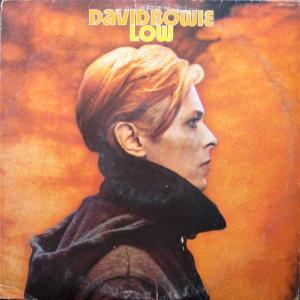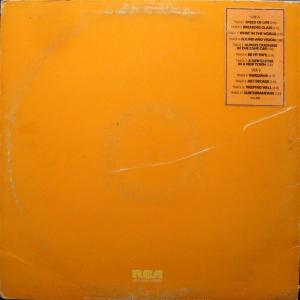Low


| Tracklist | |||
| A1 | Speed Of Life | 2:45 | |
| Notes: |
George Murray - Bass |
||
| A2 | Breaking Glass | 1:42 | |
| Notes: |
George Murray - Bass |
||
| A3 | What In The World | 2:20 | |
| Notes: |
George Murray - Bass |
||
| A4 | Sound And Vision | 3:00 | |
| Notes: |
Ricky Gardiner - Bass |
||
| A5 | Always Crashing In The Same Car | 3:26 | |
| Notes: |
George Murray - Bass |
||
| A6 | Be My Wife | 2:55 | |
| Notes: |
George Murray - Bass |
||
| A7 | A New Career In A New Town | 2:50 | |
| Notes: |
George Murray - Bass |
||
| B1 | Warszawa | 6:17 | |
| Notes: |
Brian Eno - Synthesizer [E.m.i., Mini-moog], Piano, Keyboards [Chamberlain] |
||
| B2 | Art Decade | 3:43 | |
| Notes: |
Eduard Meyer - Cello |
||
| B3 | Weeping Wall | 3:25 | |
| Notes: |
David Bowie - Synthesizer [Arp], Vocals, Guitar, Piano, Vibraphone, Xylophone |
||
| B4 | Subterraneans | 5:37 | |
| Notes: |
George Murray - Bass |
||
Greg Calbi - Mastered By
David Bowie - Producer
Tony Visconti - Producer
Brian Eno - Written-By
David Bowie - Written-By
Dennis Davis - Written-By
George Murray - Written-By
Recorded at The Chateau and Hansa By The Wall.
Mixed At Hansa By The Wall.
Issued with printed inner sleeve with credits. Some copies included a fan club flyer; some copies had track list sticker on back.

